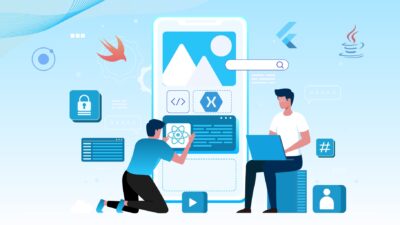Introduction
Enterprise Resource Planning (ERP) systems are the backbone of modern business operations. However, as technology evolves and legacy systems become outdated, businesses often face the daunting task of migrating to a more advanced and scalable platform. Microsoft Dynamics 365 Business Central, a comprehensive cloud-based ERP solution, has become a top choice for small and medium-sized enterprises (SMEs) seeking agility, automation, and data-driven decision-making.
Yet, the journey from legacy systems to Business Central is rarely straightforward. ERP migration involves data complexity, business process reengineering, and risk mitigation. This is where dynamics 365 business central partners play a pivotal role. These certified experts ensure a seamless migration process while minimizing disruptions and maximizing ROI.
In this article, we explore how Microsoft Dynamics Business Central partners streamline ERP migration—from assessment to go-live—and why their expertise is critical for a successful digital transformation.
Understanding the ERP Migration Challenge
Migrating from a legacy ERP system or siloed applications to Microsoft Dynamics Business Central presents several challenges:
- Complex data structures that require careful extraction, cleansing, and transformation
- Custom business processes that need to be mapped and adapted within Business Central
- User adoption hurdles due to new workflows and unfamiliar interfaces
- Integration needs with third-party tools, CRM, or supply chain systems
- Downtime risks that could disrupt day-to-day operations
Without expert planning, businesses risk project delays, cost overruns, and post-migration issues. This is where partnering with experienced Microsoft Dynamics Business Central partners becomes essential.
Key Ways Microsoft Dynamics Business Central Partners Streamline Migration
1. Conducting a Detailed Pre-Migration Assessment
The first step in streamlining ERP migration is a comprehensive assessment of the client’s existing IT landscape. Business Central partners analyze the following:
- Current ERP architecture and limitations
- Data sources, formats, and inconsistencies
- Business processes across finance, sales, inventory, and manufacturing
- Compliance and localization needs
Based on this evaluation, partners create a migration roadmap that outlines timelines, milestones, and risk mitigation strategies. This phase helps avoid surprises during the implementation and ensures the solution aligns with business goals.
2. Data Mapping and Cleansing
Data is the lifeblood of any ERP system. However, migrating legacy data into Business Central can be complex due to inconsistencies, duplicates, and obsolete records. Microsoft Dynamics Business Central partners use structured tools and scripts to:
- Identify relevant datasets for migration
- Clean and standardize data to meet Business Central’s schema
- Map data fields from legacy systems to Business Central modules
- Validate the accuracy and completeness of data pre- and post-migration
Partners also decide which data should be archived and which should be imported, reducing system clutter and improving performance.
3. Process Reengineering and Customization
Legacy systems often support outdated workflows that no longer serve the business efficiently. During migration, Business Central partners work closely with clients to evaluate, optimize, and modernize core processes such as:
- Order-to-cash
- Procure-to-pay
- Inventory and warehouse management
- Financial consolidation
- Project accounting
These processes are redesigned using the native capabilities of Business Central, reducing reliance on heavy customization. However, when needed, Microsoft Dynamics Business Central partners customize the platform using AL extensions and Microsoft’s development tools to tailor it to industry-specific or regulatory needs.
4. Phased and Agile Implementation
Rather than performing a disruptive, big-bang migration, experienced partners adopt a phased approach. This may include:
- Piloting the new system in one business unit
- Migrating specific modules (e.g., finance first, then operations)
- Running legacy and Business Central systems in parallel (dual run) for a defined period
Using agile methodologies, partners ensure that feedback is incorporated throughout the project, reducing resistance to change and improving the overall outcome.
5. Integration with Other Systems
Most businesses depend on a variety of systems beyond ERP—including CRM platforms, e-commerce websites, payment gateways, HR systems, and more. Business Central partners facilitate seamless integration with:
- Microsoft ecosystem tools (Teams, Power BI, Power Automate)
- Third-party applications (e.g., Shopify, Salesforce, or HubSpot)
- On-premise databases and APIs
By ensuring that all systems communicate effectively, Microsoft Dynamics Business Central partners create a unified digital infrastructure that drives productivity and visibility across departments.
6. Training and Change Management
One of the biggest barriers to ERP adoption is user resistance. Business Central’s modern interface and cloud-based functionality can be unfamiliar to users coming from older platforms.
Partners tackle this through robust change management strategies:
- Conducting stakeholder engagement sessions
- Offering role-based user training
- Creating process documentation and user guides
- Providing access to helpdesk and support channels
By empowering users with the right skills and confidence, partners accelerate adoption and reduce support tickets after go-live.
7. Ensuring Data Security and Compliance
ERP migration also involves moving sensitive financial, HR, and customer data. Microsoft Dynamics Business Central partners follow best practices in data encryption, user access controls, and backup strategies to ensure compliance with:
- GDPR and data privacy regulations
- Local tax laws and audit requirements
- Industry-specific security standards (e.g., HIPAA in healthcare, ISO in manufacturing)
This is particularly important for businesses operating in regulated industries or regions with stringent data protection laws.
8. Post-Go-Live Support and Optimization
A successful ERP migration doesn’t end at go-live. Business Central partners provide post-implementation support services such as:
- Bug fixing and patch management
- Performance monitoring
- Additional module rollouts
- User feedback loops and continuous improvement
They also help clients explore advanced capabilities such as automation with Power Automate, reporting with Power BI, and machine learning insights. These value-added services maximize the long-term ROI of Business Central.
Why Work with Microsoft Dynamics Business Central Partners?
The difference between a successful ERP migration and a failed one often lies in partner expertise. Microsoft Dynamics Business Central partners offer:
- Deep product knowledge from working with multiple implementations across industries
- Microsoft certification and access to the latest tools, resources, and training
- Localized expertise, especially in regions like the UAE, where tax regulations, language preferences, and market dynamics require custom configurations
- Scalability and support, offering long-term collaboration for system expansion, upgrades, and integrations
Whether you’re a manufacturing company in Dubai or a retail chain operating across the GCC, local partners understand the cultural and regulatory landscape and offer more responsive support.
Final Thoughts
ERP migration is a complex and business-critical initiative that demands precision, planning, and platform expertise. With Microsoft Dynamics 365 Business Central offering cloud agility, financial automation, and end-to-end business visibility, it’s the ideal choice for SMEs ready to modernize their operations.
However, the true power of the platform is unlocked through collaboration with certified Microsoft Dynamics Business Central partners. These partners simplify the migration journey—handling everything from data mapping and process redesign to integration and post-go-live support.
By choosing the right partner, businesses not only reduce risk and cost but also ensure a faster time to value, greater user satisfaction, and long-term success with Microsoft Dynamics Business Central.
If you’re considering an ERP migration, start by finding an experienced Business Central partner who understands your industry, your challenges, and your vision for the future.



